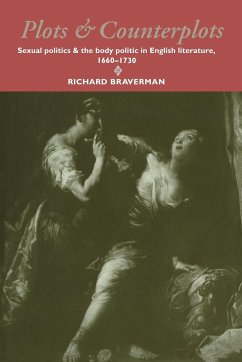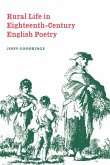A study of sexual politics in literary and political plots in the seventeenth and eighteenth centuries.
Richard Braverman's study of literary and political plots looks at the ways in which the rhetoric of seventeenth- and eighteenth-century dynastic politics finds its formal expression in narrative evocations of the family romance. Its point of departure is the political conflict that led to the rupture between crown and parliament in the earlier seventeenth century, and the ensuing quest for a discourse that might bridge the division. Beginning with the restoration of the monarchy in 1660 and ending with the rise of oligarchy in the 1720s, it traverses a wide literary territory, from royalist lyrics celebrating the Restoration, to Butler, Marvell, Etherege, Dryden, Congreve, Defoe and Thomson, amongst others. Covering an equally broad range of genres, including satire, tragedy, comedy, romance, georgic and the novel, Braverman's argument is focused by the notion of sexual politics, offering an idiom in which to address the larger framework of dynastic politics.
Table of content:
List of illustrations; Preface; 1. Political plottings: history, sexual politics, and the body politic; 2. Counterplotting restoration: widows and other fatal women; 3. The plots thicken: dogma and its discontents through exclusion; 4. Revolutionary plottings: representing the revolution; 5. Whigs and husbands: politics and cultivation; 6. Coda: cultural politics from the South Sea Bubble to Tom Jones; Select bibliography; Index.
Richard Braverman's study of literary and political plots looks at the ways in which the rhetoric of seventeenth- and eighteenth-century dynastic politics finds its formal expression in narrative evocations of the family romance. Its point of departure is the political conflict that led to the rupture between crown and parliament in the earlier seventeenth century, and the ensuing quest for a discourse that might bridge the division. Beginning with the restoration of the monarchy in 1660 and ending with the rise of oligarchy in the 1720s, it traverses a wide literary territory, from royalist lyrics celebrating the Restoration, to Butler, Marvell, Etherege, Dryden, Congreve, Defoe and Thomson, amongst others. Covering an equally broad range of genres, including satire, tragedy, comedy, romance, georgic and the novel, Braverman's argument is focused by the notion of sexual politics, offering an idiom in which to address the larger framework of dynastic politics.
Table of content:
List of illustrations; Preface; 1. Political plottings: history, sexual politics, and the body politic; 2. Counterplotting restoration: widows and other fatal women; 3. The plots thicken: dogma and its discontents through exclusion; 4. Revolutionary plottings: representing the revolution; 5. Whigs and husbands: politics and cultivation; 6. Coda: cultural politics from the South Sea Bubble to Tom Jones; Select bibliography; Index.








